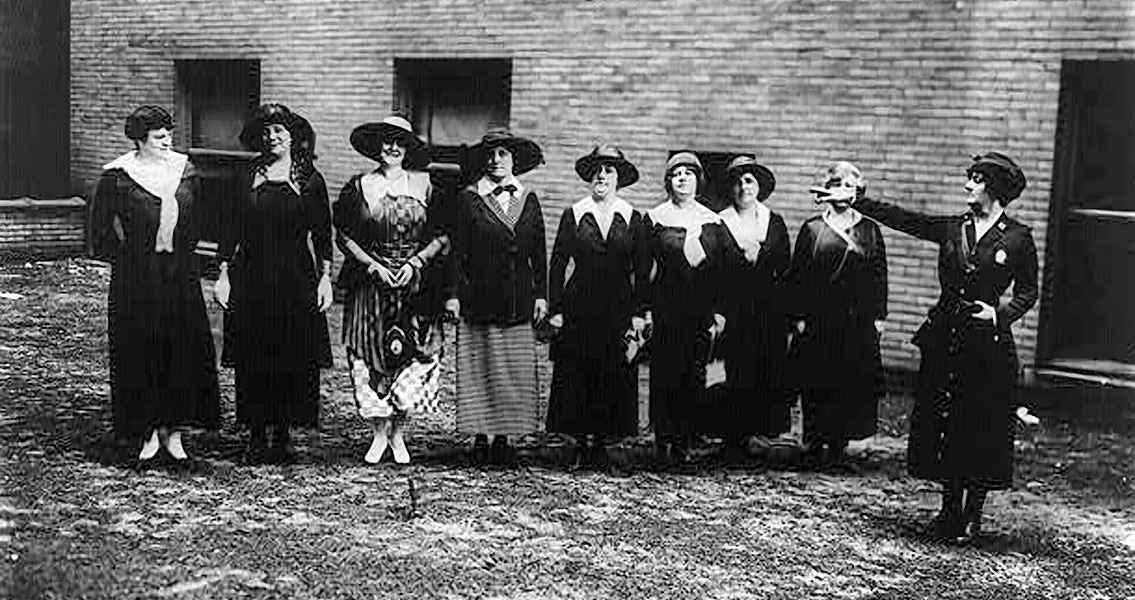<![CDATA[Alice Stebbins Wells was appointed to the Los Angeles Police Department on 12th September 1910, a landmark moment in the fight for gender equality in the United States. There had been other female police officers in the USA, but Wells was the first to be given powers of arrest. It's hard to imagine now, but little more than a century ago the idea of a female police officer having the same arresting powers as a male police officer was a radical one. This was a time ten years before women won the right to vote in the USA, when attitudes to gender roles were vastly different to what they are today. Wells' appointment as a police officer might seem a small step, but it was one of many hugely important triumphs in the long running battle to alter sexist prejudices and win equality. The appointment came at the end of a long, arduous campaign for Wells. Born in 1873, little is known about Wells' upbringing and early life. She studied theology and criminology at Hartford Seminary before beginning work as a pastor and social worker. In 1909, Wells, by then a seasoned social worker, and her husband moved to Los Angeles. Soon after arriving, she launched a campaign demanding the city's authorities create an ordinance allowing for the inclusion of women in the LAPD. By May 1910, Wells had gathered over a hundred signatures in support, and she presented her petition to mayor George Alexander and the city council. The petition was a success, the measure was passed, and Wells herself was appointed Los Angeles' first woman police officer with arrest powers on 12th September, 1910. Wells' reasoning seems obvious now, but at the time her arguments were groundbreaking. Since 1890, women had been employed by law enforcement agencies in the USA, but only in the penal system to care for female prisoners. She argued that in a changing society, female victims of sexual assault or domestic abuse needed women police officers to confide in. Her experience as a social worker made her all too aware how uncomfortable it is for women to report crimes to male officers. Full equality didn't come immediately, reflecting the slow pace with which deeply embedded values change. Wells was given a police badge, a rule book and a telephone call box key - all standard issue at the time, but she wasn't issued with a firearm. Her duties were limited: seemingly mundane tasks such as supervising public recreation areas like cinemas and skate rinks. Being appointed a police officer didn't stop Wells' ferocious campaigning. Building on the nationwide publicity garnered from her position, she pushed for wider inclusion of women as regular officers in police departments. In 1915, she played an instrumental role in the founding of the International Policewomen's Association; and a mark of her success is that by 1916, women police officers were working in sixteen other US cities. Wells eventually retired in 1940, having served in the LAPD for thirty years. Even then, her tireless dedication to fostering change continued, and Wells gave lectures on the importance of women in the police force until her death.]]>
The LAPD's First Woman Officer and the Fight for Equality
